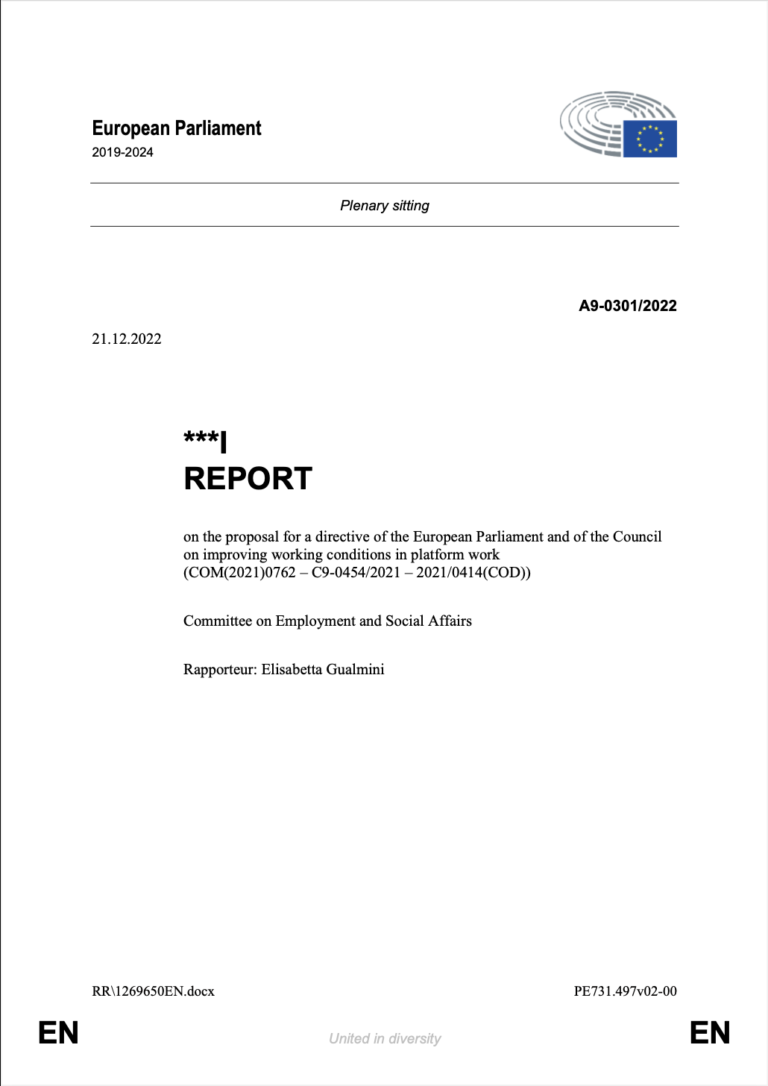Platform work is one of the key transformations that digital technologies are bringing to labour markets across the world. Several sectors are shifting to the labour platform economy, from transportation to proximity services to creative industries. The Covid-19 pandemic accelerated this trend, promoting sectors that were already moving towards platform work such as food delivery. Data reflects such a trend: according to the Commission estimates, over 28 million people in the EU are involved in platform work, and by 2025 this number will rise to 43 million.
The flexibility and exponential growth of platform work however risk, without proper regulation of the phenomenon, to bring about precarious working conditions, at the expenses of the people performing that work. Evidence across the EU shows that people performing platform work often do not enjoy the same rights as workers in the traditional economy, as they are even not recognised as such, even if facts would prove it and, because of the conditions raising for platform work organisation, involving algorithmic management, are particularly subject to exploitation. Therefore, this Directive aims at ensuring that developments brought about by new technologies do not hamper the rights that workers in the EU rightly obtained over the past decades.

